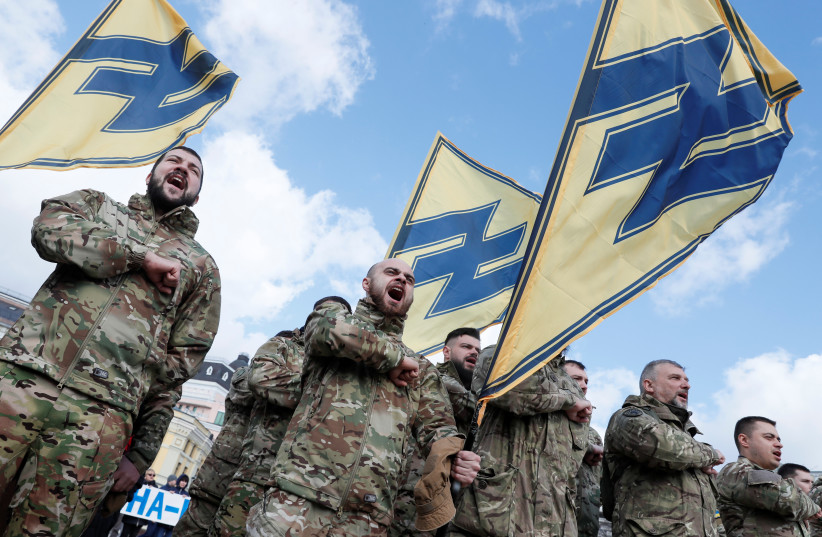Russia's Foreign Ministry said on Thursday that British fighters who had been captured in Ukraine were being fed, watered and given necessary help.
"Don't worry, the Russian side is taking care of them. They are fed, watered, and given the necessary assistance. Just like other foreigners who have surrendered or been detained," Foreign Ministry spokeswoman Maria Zakharova said.
Two British fighters captured in Ukraine by Russian forces appeared on Russian state TV on Monday and asked to be exchanged for a Ukrainian ally of President Vladimir Putin who is being held by the Ukrainian authorities. It was unclear how freely the two men - Shaun Pinner and Aiden Aslin - were able to talk.
The Russian Mission in Geneva on Monday tweeted a video of Aslin talking about alleged war crimes committed by Ukraine's Azov Battalion, though that video has since been deleted.
Wearing a shirt with an Azov Battalion insignia, Aslin, who served in the marines and not with Azov, said that members of the battalion tortured civilians and used them as human shields.

Russia has frequently pointed to the unit in propaganda, as some members have been associated with the far-right and neo-Nazism. Russian President Vladimir Putin said that Russia's invasion of Ukraine is a "special military operation" meant to "de-Nazify" the country.
"I'd seen two civilians that were captured by Ukrainian forces, allegedly were spying for Russian forces - during this encounter, I was on guard duty and saw the civilians hogtied and blindfolded by a battalion intelligence group. They brought them down into the bunker and placed them into a room. After that, I'd never seen them again.
"Given the circumstances in which we were in, with enemy forces all around us, I can only stop and think if maybe they did something to them because of the situation we were in. Unfortunately, we won't know until Russian and DNR forces have investigated the full territory of the [metallurgical] factory and then we might have some information on what happened to these two civilians.
"Throughout the past couple of weeks after this, the odd civilian would come by and they would be forcibly told to leave until eventually, they started arresting anyone that would come onto the territory, even if it was just [a] simple mistake or if they were lost, they would take them."
Violating the Geneva Convention
Presenting footage of prisoners of war is considered a violation of the Geneva Convention, meaning Russia very well may have committed a war crime.
In mid-March, the humanitarian NGO Human Rights Watch (HRW) criticized Ukraine for doing the same with footage of captured Russian soldiers.
“The obligation to protect POWs from being objects of public curiosity, as well as protecting them from intimidation or humiliation, is part of the broader requirement to ensure their humane treatment and protect their families from harm,” HRW senior legal adviser Aisling Reidy said at the time.
Shira Silkoff contributed to this report
